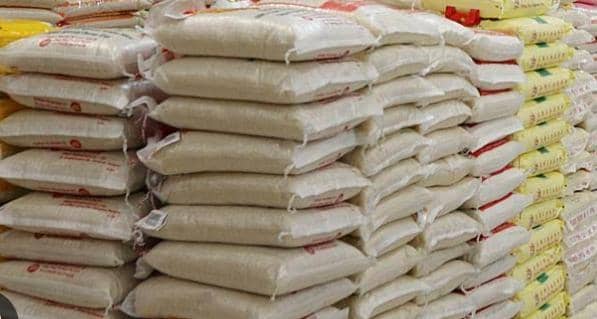The Kukah Centre, on Wednesday, expressed concerns that some Nigerians have developed a habit of expending their hard-earned money on beer, pepper soup and other unhealthy lifestyles even in the face of economic hardship.
The Executive Director of the centre, Rev. Fr. Attah Barkindo, raised the concerns at a one-day Strategic Dialogue on Nutrition by National Faith Influencers held in collaboration with the World Bank in Abuja.
The Kukah Centre is a policy research and leadership institute, founded by the Bishop of the Catholic Diocese of Sokoto, Matthew Kukah.
Over the years, malnutrition has become a critical issue with 37 per cent of children under five experiencing stunted growth due to poor nutrition and inadequate breastfeeding.
According to the Federal Ministry of Health, the problem becomes even more alarming as children grow older, with many parents blaming it on poverty and poor economic indices.
But Barkindo disagreed, arguing that it boils down to the poor management of finances and the value system of the people.
He said, “People still use their money to eat the wrong things. You see them spend money recklessly on beer and pepper soup. They spend on buying cigarettes to smoke. So what we are only asking is for them to redirect the little money they have purposefully. Despite the complaints of economic hardship in the country, people are still building houses.
“As I said, it is about redirecting their little resources. Otherwise, the situation can really get worse. It doesn’t mean that even amid all these challenges people are not misusing and mismanaging their finances. In my opinion, they are. I think it is time we started taking responsibility.
“I will give you another example. Somebody came into an IDP camp not too long ago. After moving around, he ended up with four wives from different IDP camps. We have seen that and even have evidence. This is to tell you about our value system. It is beyond people going through economic challenges. It is down to our value and orientation.”
Speaking further on the need to protect children from malnutrition, the priest appealed to clerics and faith influencers across the country to take up the campaign by preaching on the importance of nutrition and breastfeeding.
While narrating his childhood experience, Barkindo explained that he also encountered the problem of malnutrition firsthand hand, being the eighth child in a family of 17 living in the North.
“My parents have 15 children in Northern Nigeria and they have never been to school. When I look back, I often question myself on how we managed to survive. Out of those 15, I am the 8th child, which represents the middle. They often call people like us the forgotten ones. Nobody remembers you when you are in the middle. They pay attention to those at the beginning and the back.
“That is why millions of families in this country and globally across the world are struggling to provide quality nutrition for their children so they grow up to fulfil their potential. These children are equally competing with their contemporaries around the world.
“This is why the Kukah Centre is mobilising gospel ministers and faith influencers to use your influence and platforms to spread the message in nutrition and breastfeeding. The two are not just biological, they are also deeply spiritual. Your voices hold power and we need you to talk about this in your churches and among your congregation,” he appealed.
Earlier in her address, the Project Officer of Kukah Centre, Swanta Anna, also urged the audience to take the five-year ‘Accelerating Nutrition Results in Nigeria’ project seriously because the World Bank has invested $232m into the initiative to support Nigerians.
“It is an initiative that will cost about to implement. We are also happy that the data we have in Nigeria helped us to know the area to focus on. In Nigeria where infant mortality is high, if a kid manages to scale beyond age four, he is sure of survival.
“This is a very critical period in the life of every child. Some of us born before the Nigerian Civil War were lucky to survive the scare. Some of my age mates died from hunger and malnutrition,” she stated.
Don’t Miss The Opportunity Awaiting You. Click the link below 👇
https://faikudoka.net/4/5193489
Please don’t forget to “Allow the notification” so you will be the first to get our gist when we publish it.
Drop your comment in the section below, and don’t forget to share the post.
Never Miss A Single News Or Gists, Kindly Join Us On WhatsApp Channel:
https://whatsapp.com/channel/0029Vad8g81Eawdsio6INn3B
Telegram Channel:
https://t.me/gistsmateNG




